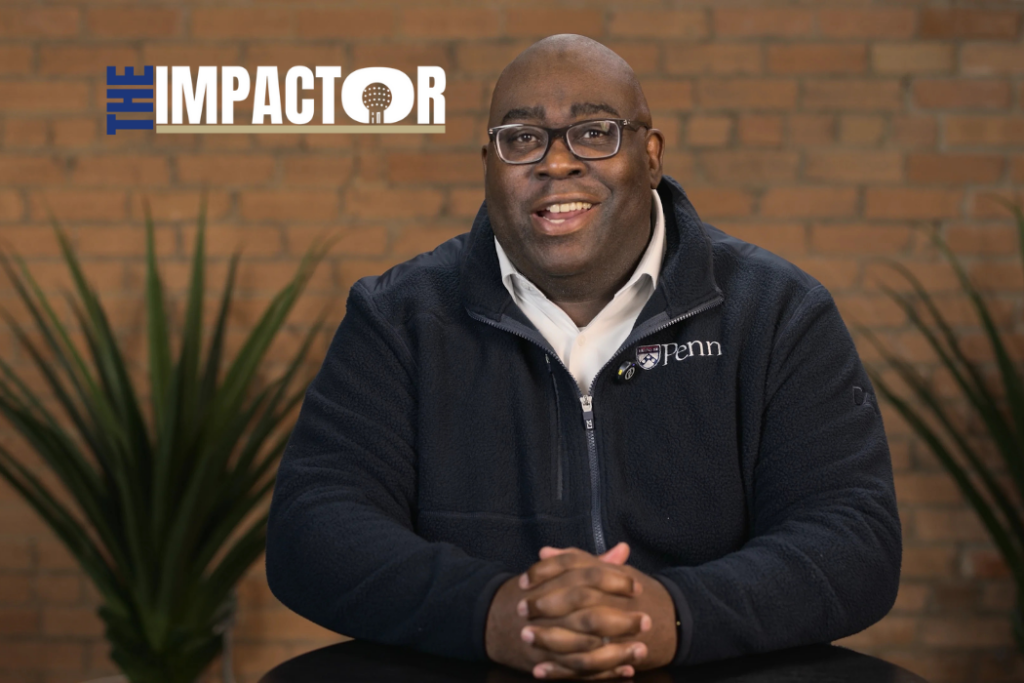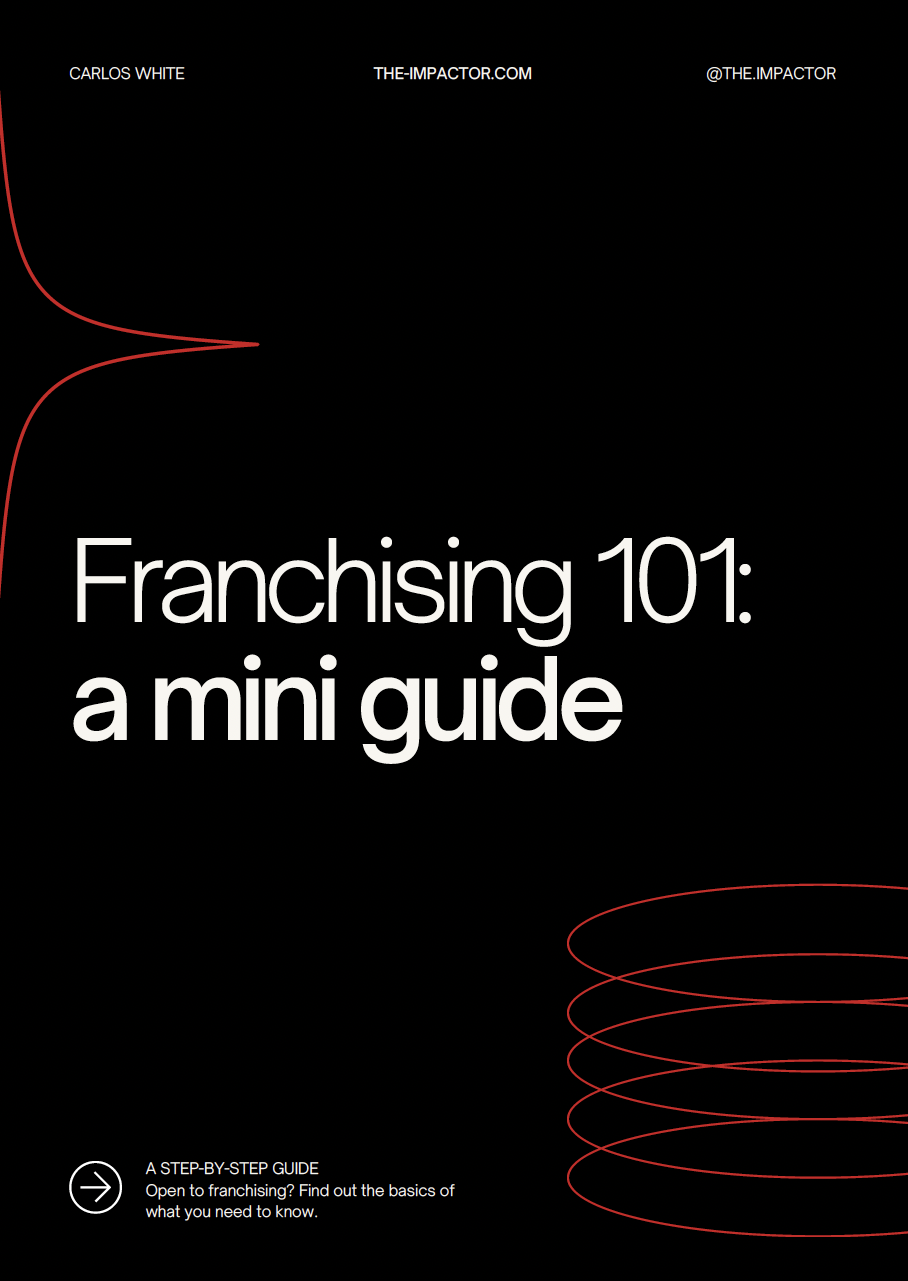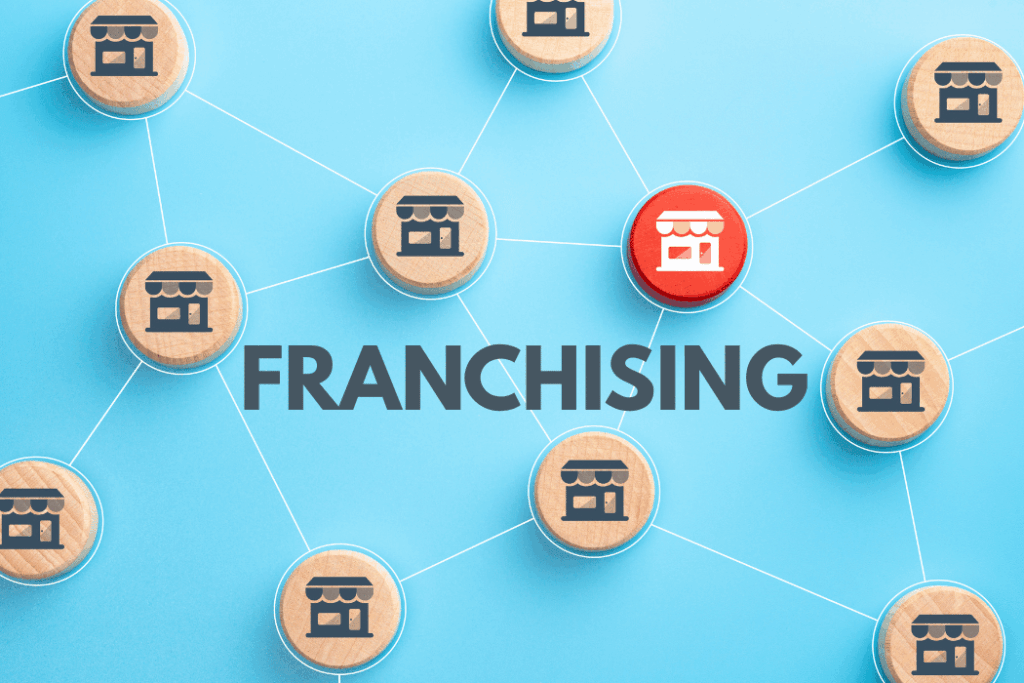
How Diverse Entrepreneurs Can Scale Smart, Stay True, and Build Wealth
When most people hear “franchise,” they picture golden arches or a pizza delivery car. But here’s what they’re missing: franchising isn’t just for fast food giants. It’s a powerful business model that’s helping small companies grow without draining their bank accounts, and it’s hiding in plain sight across healthcare, technology, fitness, and dozens of other industries.

Carlos White knows this better than most. As an award-winning franchise attorney and Dallas’s Franchise Impact Ambassador, he’s helped everyone from local chicken shops to tech startups scale their businesses through franchising. And he’s got news for entrepreneurs who think franchising is out of reach.
“Franchising is not an industry,” White explains. “It’s a business model. That means any industry can use it to grow and scale.”
The Big Difference: Franchising vs Licensing (And Why It Matters)
Before you dream of expanding your business, you need to understand one crucial thing: the difference between franchising and licensing. Get this wrong, and you could face serious legal trouble.
Here’s the simple truth: every franchise involves a license agreement, but not every license is a franchise. The difference comes down to three things working together.
If you’re giving someone the right to use your brand name, training them on how to run the business, and charging them fees, congratulations, you’ve created a franchise. And that means you need to follow franchise laws, whether you meant to or not.
“The franchise laws are written so broadly that if you are providing somebody the right to use your brand, you train them up, and they’re paying you a fee, that is a franchise,” White warns.
Want to create a true licensing deal instead? You’ll need to “white label” your product. That means no one can know it’s your brand behind it. The person buying the license can’t use your company name when selling to customers.
Breaking these rules, even by accident, can lead to personal liability, hefty fines, legal fees, and in some places, criminal charges. That’s why White insists on hiring a franchise attorney before signing any agreements.
Beyond Burgers: Where Franchising Is Booming Right Now

Forget everything you think you know about franchising and fast food. The real action is happening in places you’d never expect.
“Healthcare and wellness, that’s where you’re beginning to see explosive growth,” says White. Medical services, fitness studios, and wellness centers are using franchising to deliver better care to more communities.
Technology is another hot spot. E-gaming centers and e-sports facilities are franchising their concepts across the country. These aren’t your grandfather’s franchise opportunities.
But the biggest surprise? These industries are perfect for small and mid-sized businesses looking to grow without massive capital.
The Money Question: Can Small Businesses Really Afford to Franchise?
Here’s where franchising gets interesting for smaller companies. Let’s say you want to open three new restaurant locations on your own. You’re looking at $600,000 to $1.5 million in costs. Plus, you have to hire all the employees, manage daily operations, and handle every problem that pops up.
Most small businesses can’t get loans for that kind of money.
Enter franchising. Instead of spending a million dollars, you could create a franchise program for a fraction of that cost, then partner with someone who wants to operate in a specific area. They put up the money to build out the location. They hire the staff. They handle the day-to-day headaches.
“You’re basically outsourcing a lot of those expenses to the local partner that’s helping to grow and scale the business,” White explains.
This is why everyone from McDonald’s to your local coffee shop uses this model. It’s the fastest, most cost-efficient way to grow because you’re not shouldering all the costs yourself.
The Real Cost of Starting a Franchise Program
Now, let’s talk numbers. Many franchise development companies will charge anywhere from $20,000 to $100,000 to set up your franchise program. Some charge even more.
White says that’s often unnecessary. At minimum, franchising requires having the right legal documents in place. In most states, that should cost between $10,000 and $15,000 for the basic requirements.
But legal fees aren’t the only expense. White recommends budgeting for three main areas:
Legal documentation: $10,000 to $15,000 for the minimum required documents
Marketing expenses: $5,000 to $10,000 spread over 90 days to find your first franchisees
Operations consulting: $2,500 to $3,000 if you need help tightening up your systems
You’ll also want a good accountant who understands cash flow and can help you set fee structures that make sense for your business.
Here’s a smart tip from White: before you spend a dime on franchising, ask yourself this question: “Has anyone ever asked if they could become a franchisee of my business?”
If the answer is yes, maybe a customer, a manager, or someone in another city, you already have your first potential franchisee. That makes the investment even smarter.
Two Paths, Two Mindsets: Becoming a Franchisor vs. Franchisee
White sees franchising as two separate buckets, each requiring a different approach.
Bucket One: Franchising Your Own Business
If you’re creating a franchise from your existing business, you need to think about systems and consistency. Can someone else follow your recipe for success? Are your operations documented? Can you teach what makes your business work?
Bucket Two: Buying Into a Franchise
If you’re buying someone else’s franchise, here’s the key trait that separates winners from losers: execution over creativity.
“Those that are able to be trained up and execute on the business model are going to be more successful than those that think that they can add creativity to the process,” White says.
When you buy a franchise, the franchisor handles research and development. They’ve already figured out what works. Your job is to follow their playbook exactly as written.
This is hard for entrepreneurs who started their own businesses. They’re used to innovating and trying new ideas. As a franchisee, that instinct can hurt you.
But here’s the good news: you can still scratch that entrepreneurial itch. “You still have a lot of flexibility even if you do decide to become a franchisee to operate other independent businesses as long as they do not conflict with the primary business of the franchise that you bought,” White notes.
The Myth That Could Cost You Your Brand
Many business owners fear they’ll lose control of their brand if they franchise. White says that’s completely backward.
Think about it: when you run your own stores, you hire employees. Those employees can quit anytime. You usually don’t have contracts with them. If you haven’t protected your intellectual property correctly, employees might even walk away with your trade secrets.
Now compare that to franchising. Every single franchisee signs a detailed contract protecting your brand, your processes, and your intellectual property. Break the rules? There are real penalties.
“You will have a better handle on your standards, your processes, and your controls than if you would just another company-owned store,” White explains.
Who’s more motivated to follow your rules and make your business successful? A manager who could get another job next week, or a franchisee who just invested $200,000 and signed a 10-year agreement?
The Professional Team You Can’t Skip
White is adamant about one thing: don’t go into franchising alone.
Whether you’re creating a franchise or buying one, you need professionals in your corner from day one. At minimum, that means a franchise attorney and an accountant.
If you’re opening a retail location, add a general contractor to your team. And start building your employee hiring plan before you sign any papers.
“Having those types of plans and a strategy so that you can build your systems to be successful earlier in the process as opposed to waiting until after you sign the franchise agreement will be helpful,” White advises.
These professionals aren’t just expenses, they’re investments that help you avoid expensive mistakes. Your contracts are the lifeblood of your company and directly affect your profit and loss. You need someone who understands the fine print and can spot problems before they explode.
Three Questions to Ask Before You Franchise
Ready to explore franchising? White suggests asking yourself these questions:
1. Do you have proven systems? Can someone else replicate your success by following your processes?
2. Has anyone asked to license or franchise your business? If yes, you might have your first franchisee waiting.
3. Can you handle the administrative burden? Franchising means managing independent owners, providing ongoing support, and maintaining quality control across multiple locations.
Making Franchising Work for Everyone
As Dallas’s Franchise Impact Ambassador, White is working to make franchising accessible to diverse entrepreneurs, minorities, and women business owners who’ve historically been left out.
His secret? Bring in people who’ve actually done it successfully. His advisory board includes Roland Parrish, CEO of Parrish Restaurants, the second-largest minority franchisee in the McDonald’s empire who operates 26 McDonald’s locations; Tim Williams of Williams Chicken, which has 40 franchise units in Dallas; and Calvin Golden, who helped create Wingstop’s first franchise program.
“If we’re going to have a successful program, one that transcends race, socio-economic backgrounds, gender, I’m going to need to find the best of the best,” White says.
Other cities can replicate this model by finding successful franchisors and franchisees in their area who can provide real insights—not just franchise marketers trying to sell something.
The Bottom Line: Is Franchising Right for You?
Franchising isn’t perfect, and it’s not for every business. But if you’re ready to grow without draining your savings, if you want to expand faster than traditional methods allow, and if you’re willing to invest in proper legal and operational support, franchising could be your path to building something bigger.
The most important step? Get educated before you commit to anything.
“Whether you’re franchising your business or you’re buying into a business, you have to be able to understand transactional strategy and contracts,” White advises. “Everything is predicated off a contract.”
Find a franchise attorney with a corporate background who can explain these contracts in plain language. Understand your rights, protect your revenue streams, and build systems for success from day one.
Because in franchising, like in life, knowledge isn’t just power. It’s profit.
Want to Learn More?
Carlos White offers consultation calls for entrepreneurs considering franchising their business, evaluating franchise opportunities, or reviewing existing licensing and distribution agreements. Learn more at www.the-impactor.com or email carlos@the-impactor.com.
This article is for general informational purposes only and should not be considered legal advice. Always consult with a qualified franchise attorney before making business decisions.

DOWNLOAD THE FRANCHISING 101 MINI GUIDE
Don’t make expensive mistakes. Get our free Franchising 101 Mini Guide with everything you need to know before franchising your business—including the legal traps most entrepreneurs miss and tips for beginners.













